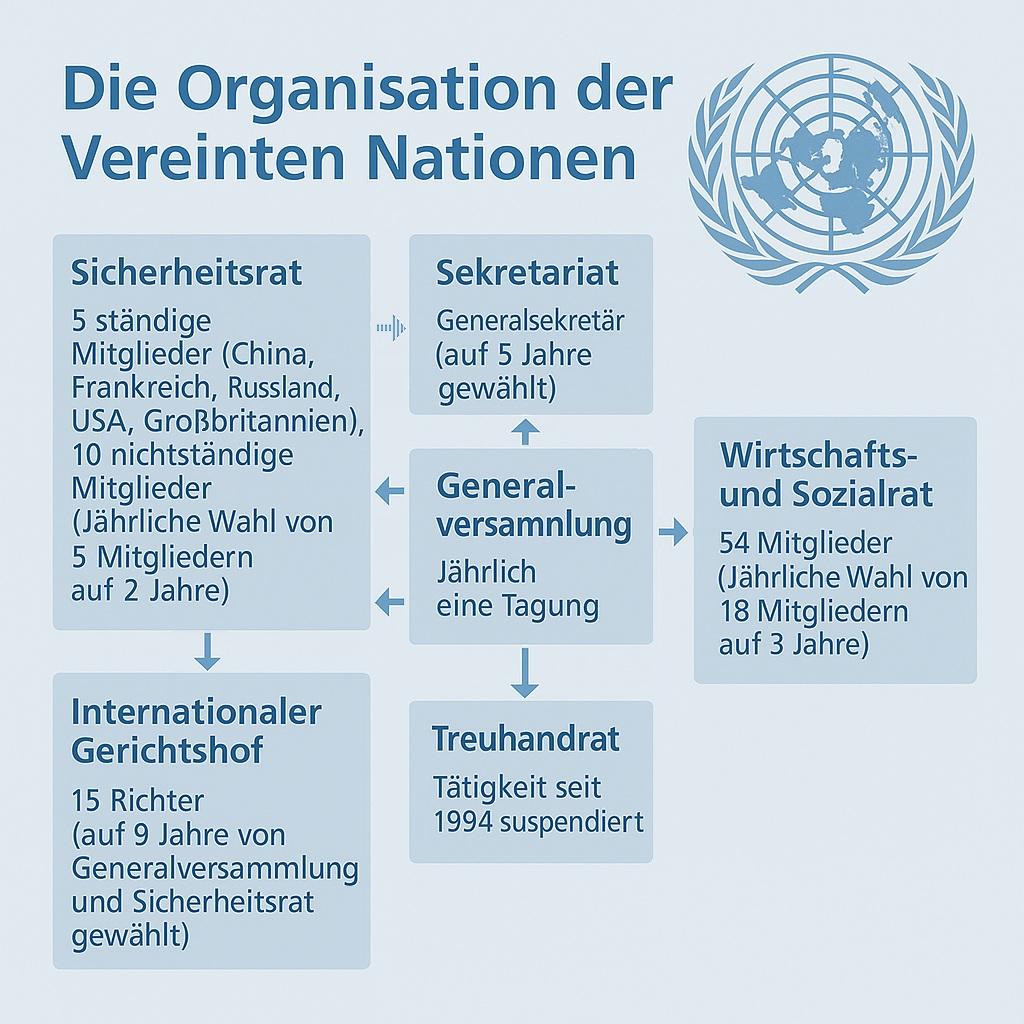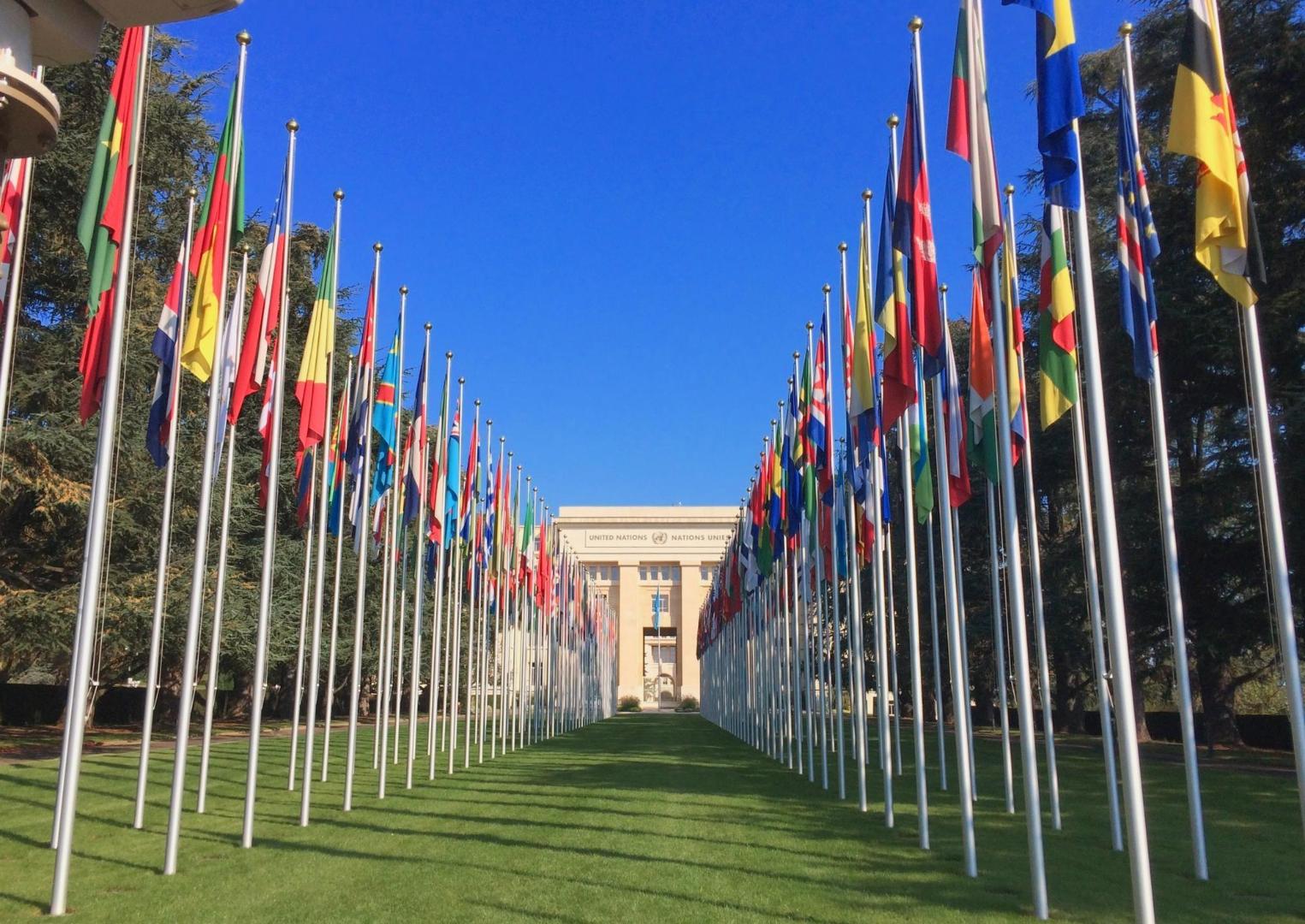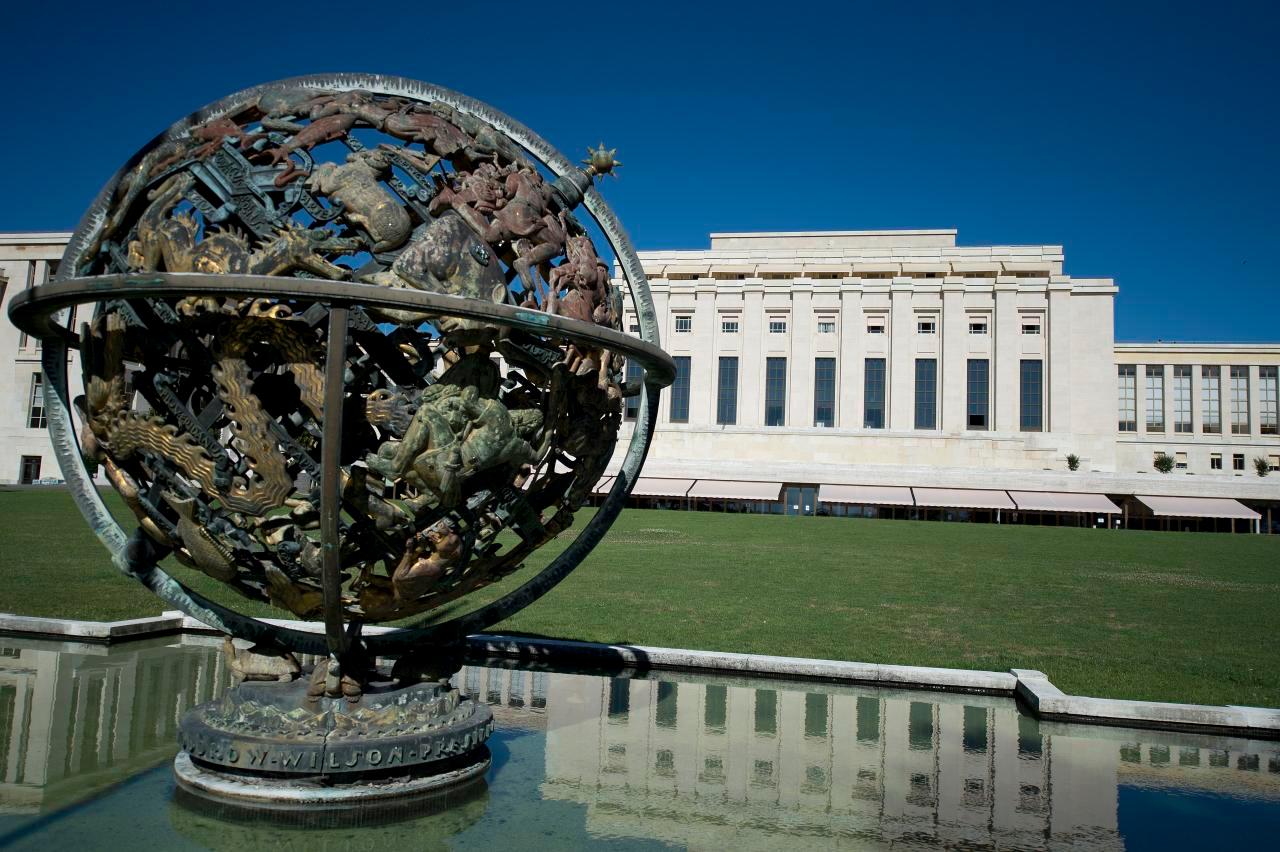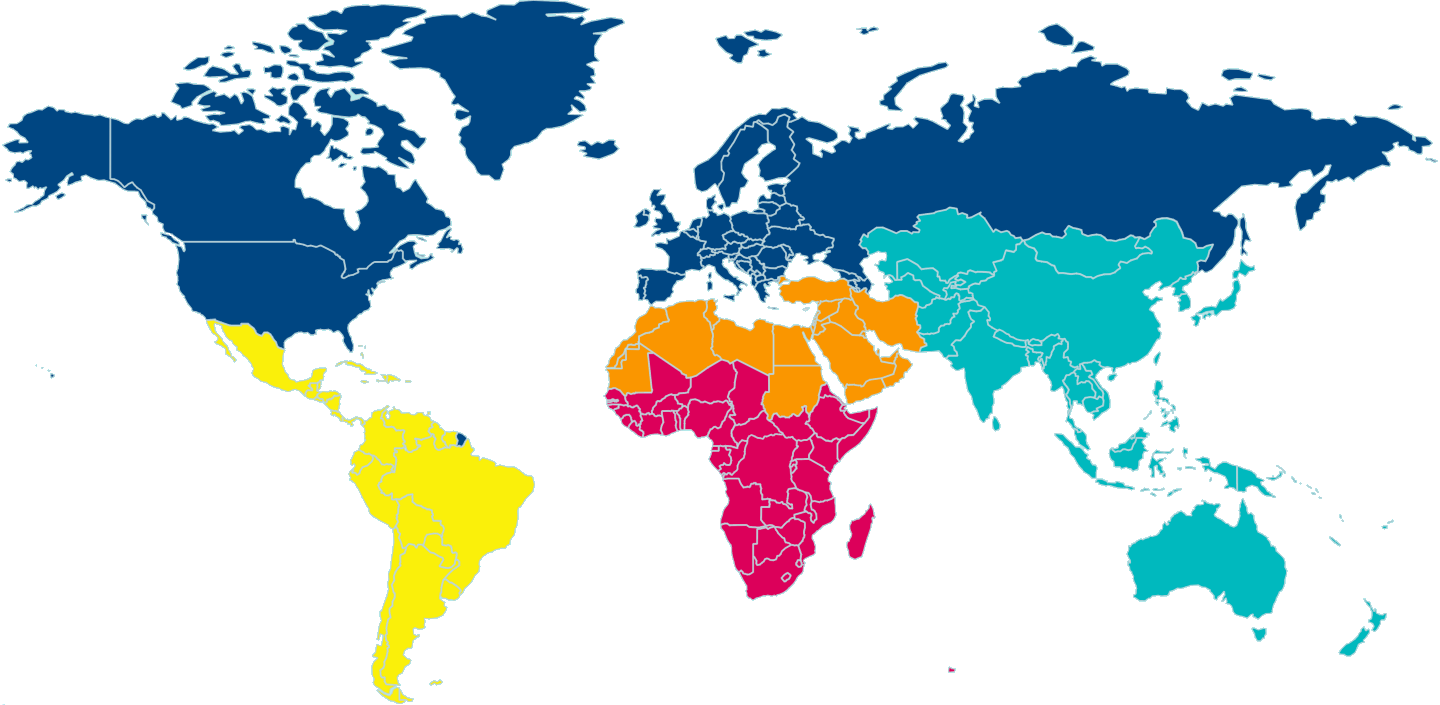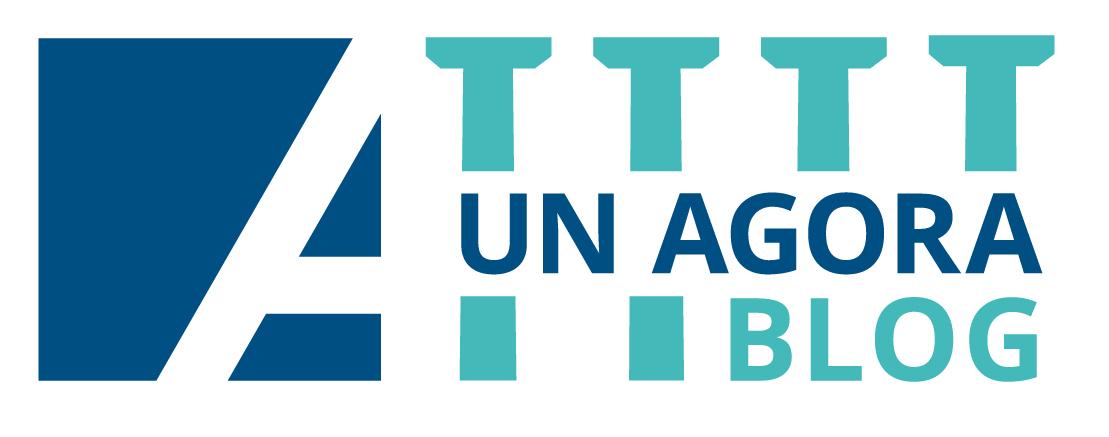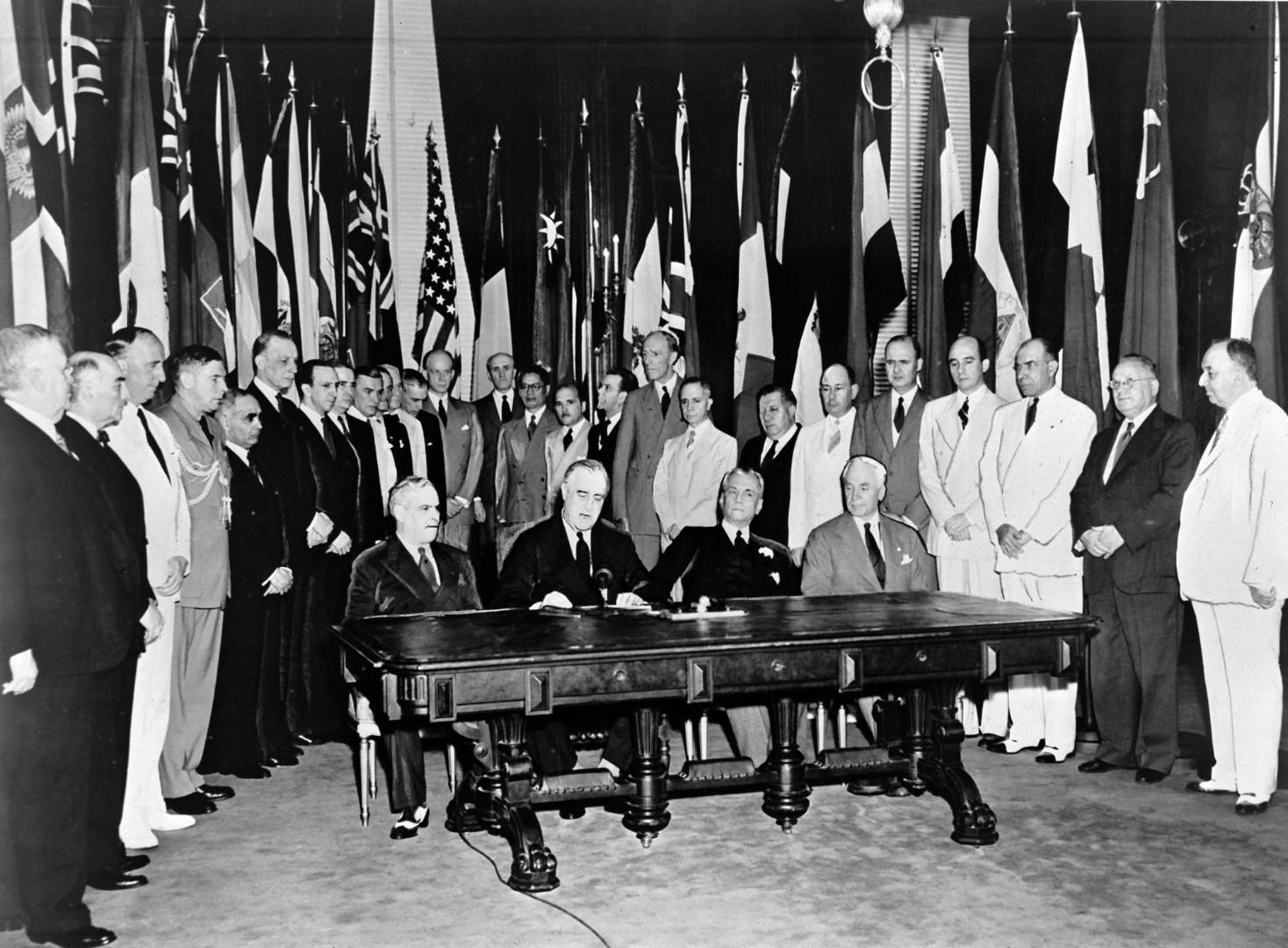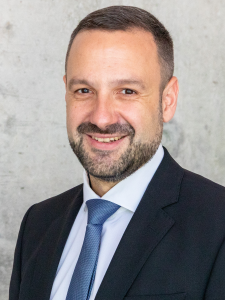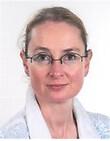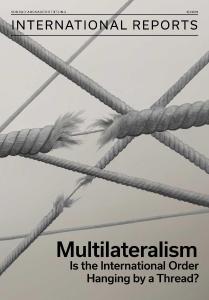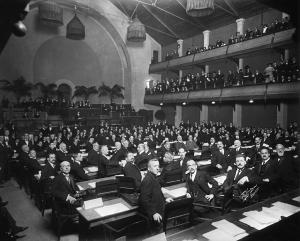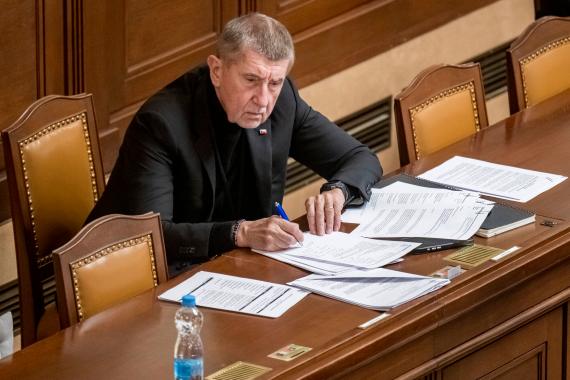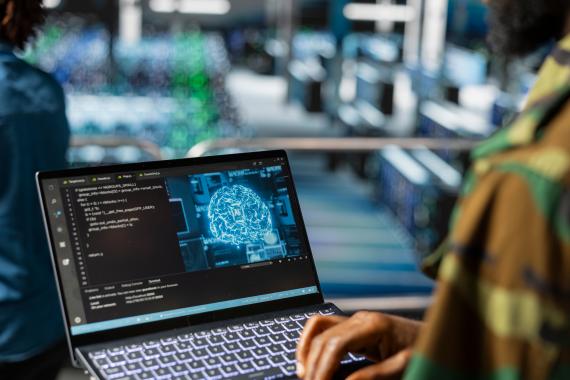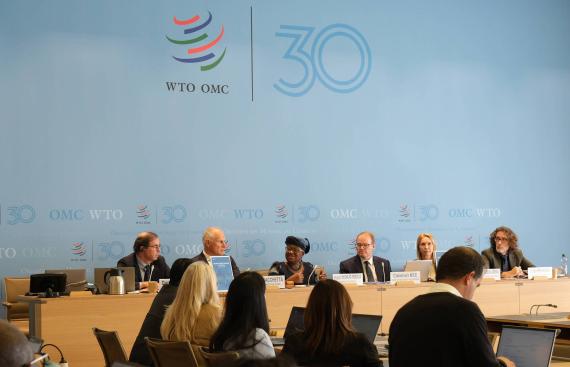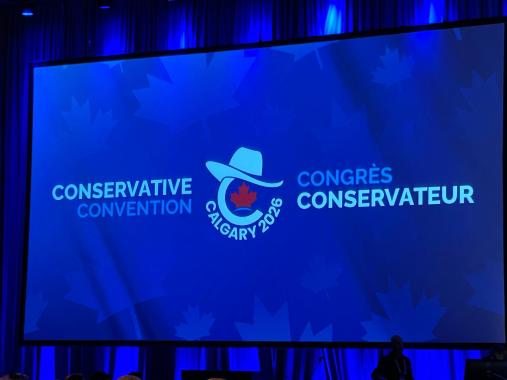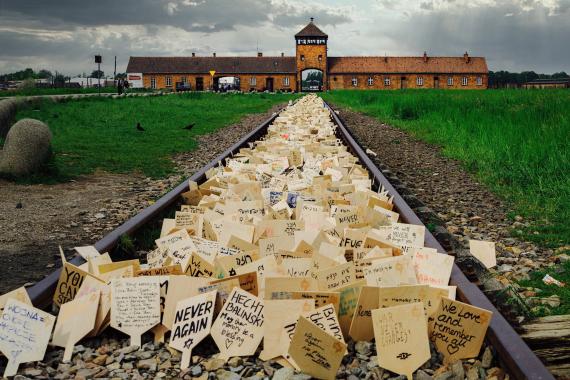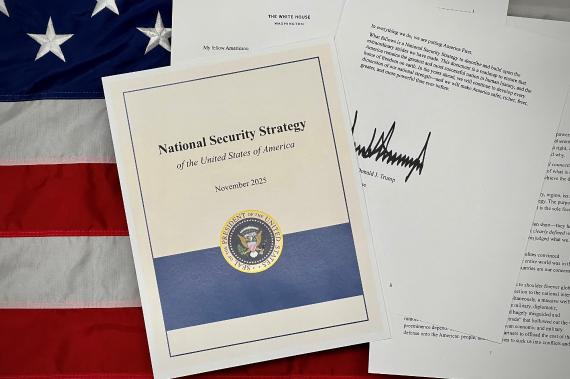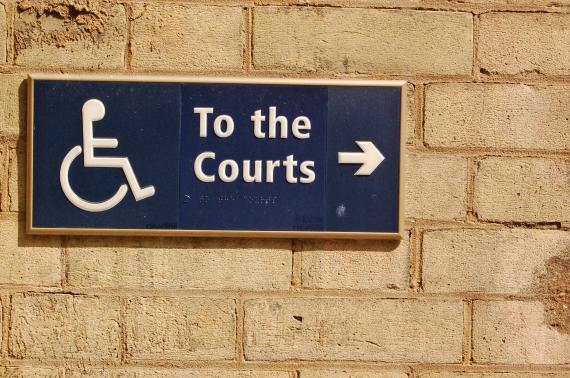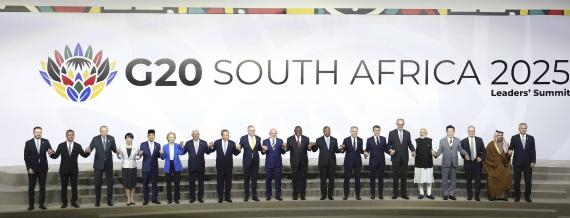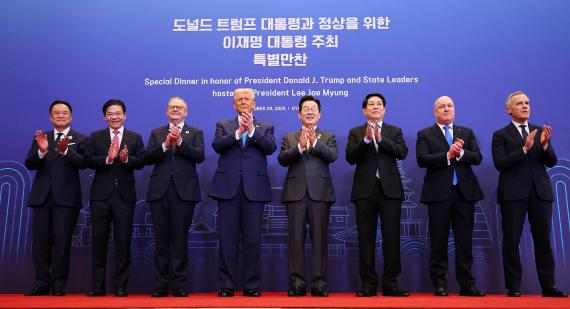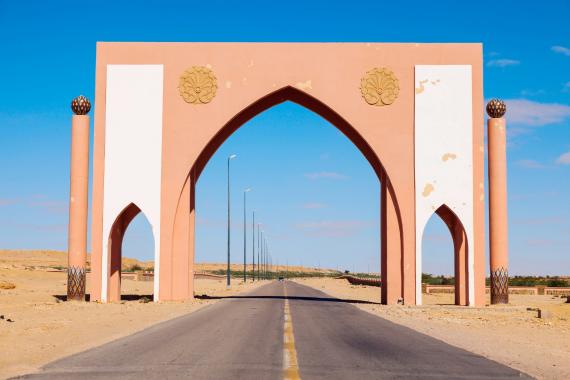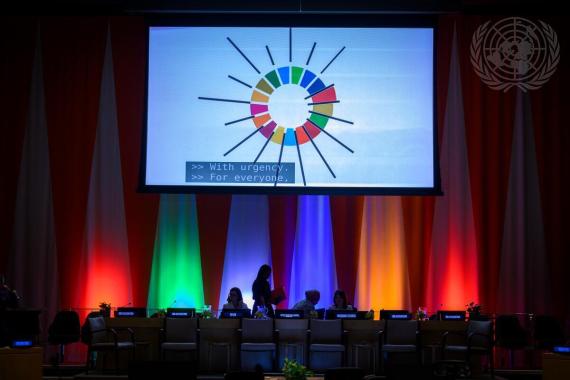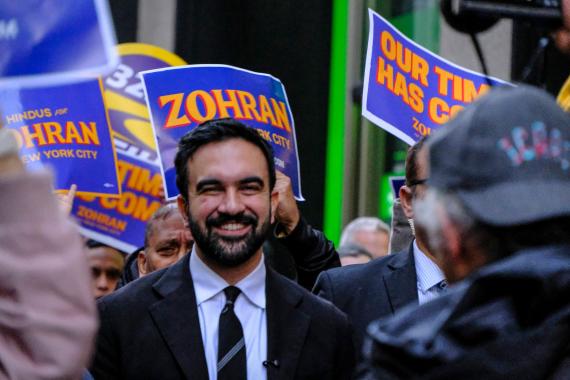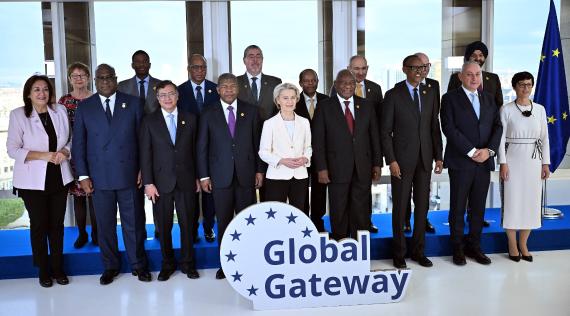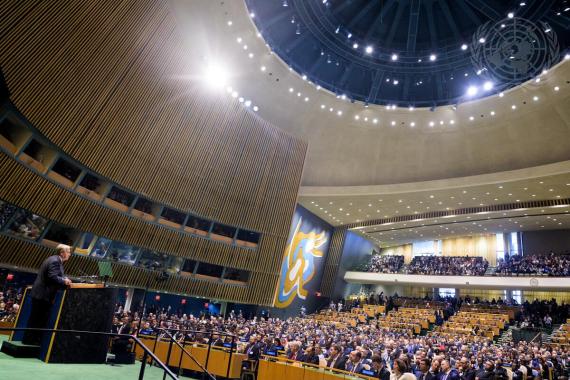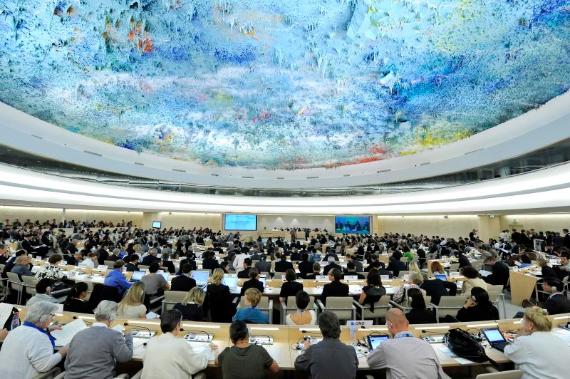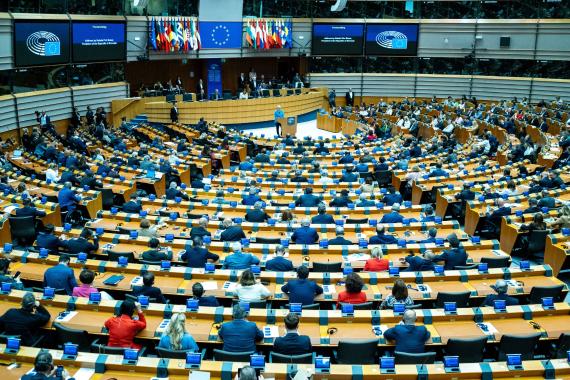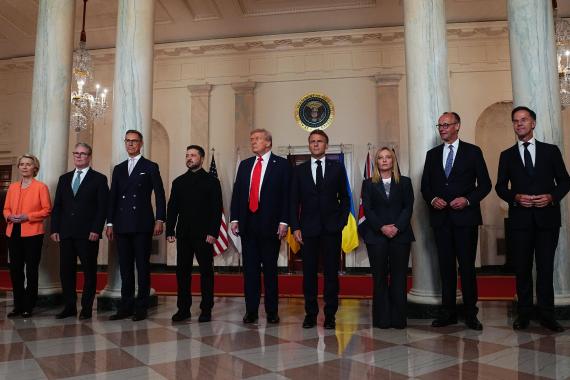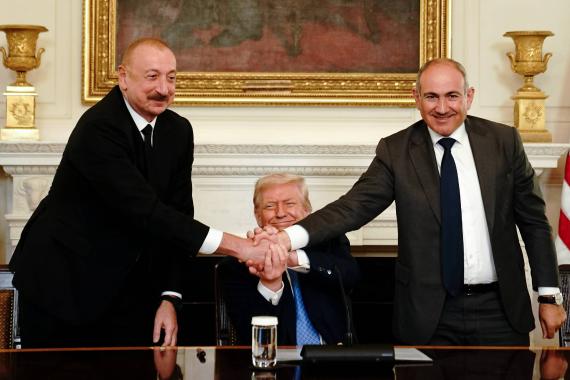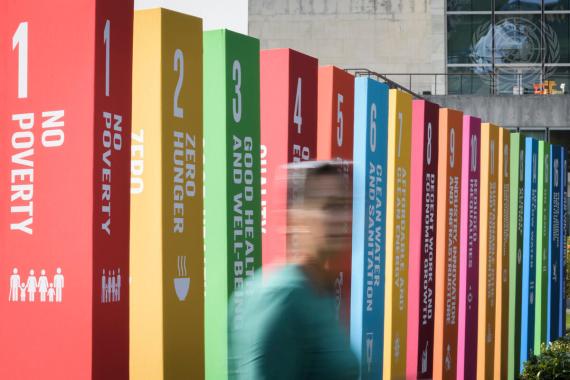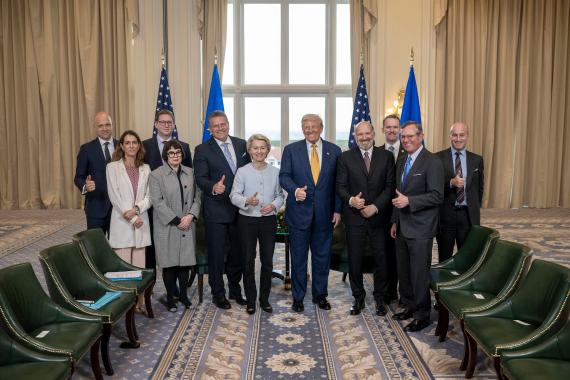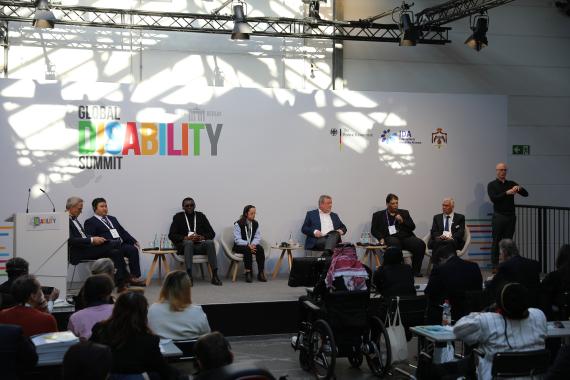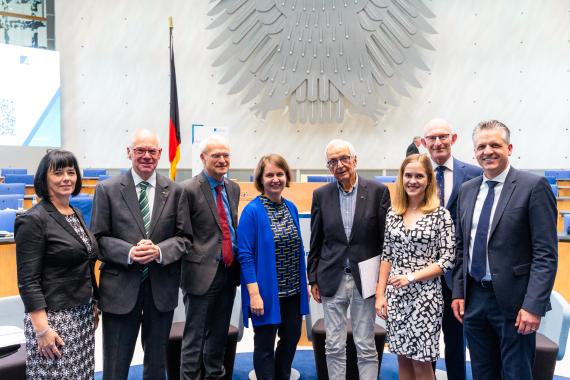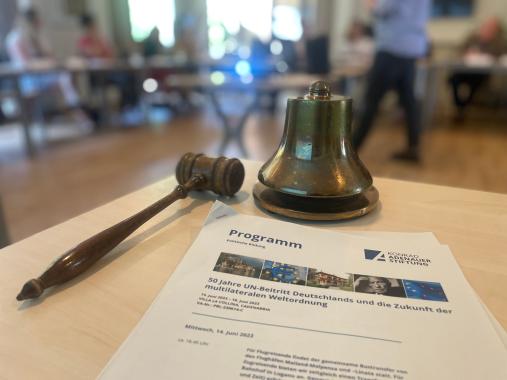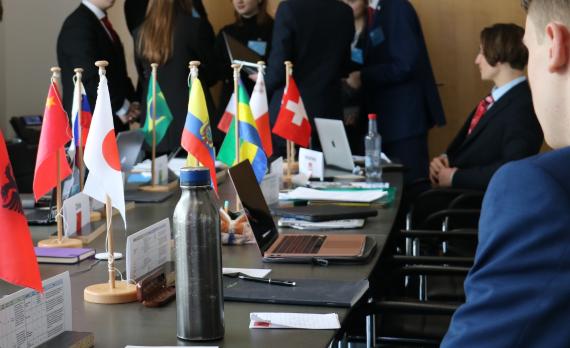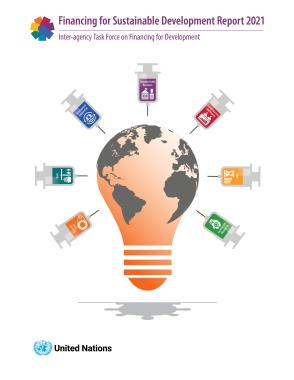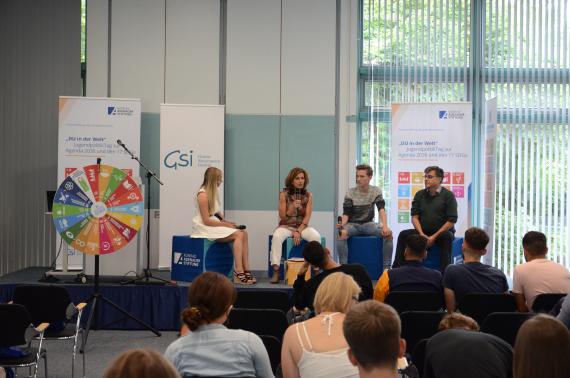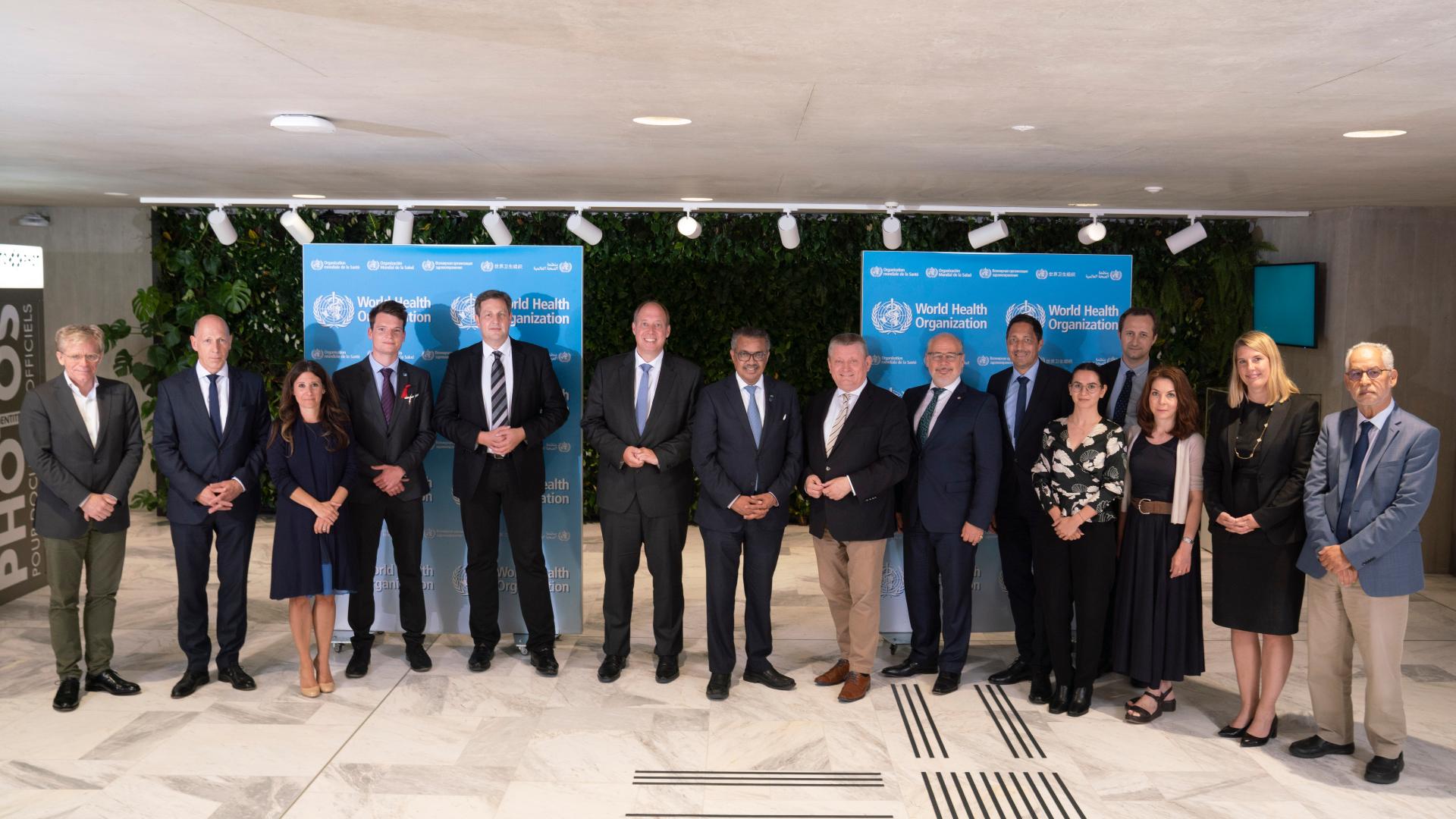Strengthening multilateralism (...) is not a choice, but a necessity.
At a glance
- More than 75 years after its foundation, the multilateral system of the United Nations faces the greatest challenges in its history.
- The main critical factor is the United Nations’ loss of legitimacy in the wake of various crises. The organisation has difficulties in fulfilling its mandate as well as finding and implementing rules-based solutions to global problems.
- Multilateralism is clearly in need of reform. Frequent blockades in the Security Council severely stymie the United Nations’ ability to act.
- As the Konrad-Adenauer-Stiftung, we consider rules-based multilateralism to be indispensable and advocate further developing the multilateral system. We are therefore intensely involved in discussions and the work of multilateral institutions at several locations.
Content
1. Multilateralism under pressure
3. There is a great need for reform
4. Strengthening the rules-based multilateral order
5. Our offers and projects on the topic
6. Publications, events and media contributions on the topic
Most of the challenges facing a state cannot be resolved alone – no matter how big or small. Over time, many multilateral organisations have been established to cooperate on a wide variety of subject areas. The centrepiece of international cooperation, in which almost every country in the world is represented with 193 member states, is the United Nations system.
Multilateralism under pressure: the United Nations finds itself in a legitimation crisis
75 years after its founding on 24 October 1945, the multilateral system of the United Nations is confronted with the greatest challenges since the Second World War. According to the Charter of the United Nations, the goals are to secure global peace, safeguard human rights and promote the economic and social progress of all peoples. However, the organisations are finding it increasingly difficult to fulfil their mission. The Covid-19 pandemic, climate change, the Russian war of aggression against Ukraine as well as other and new forms of global conflict pose a real danger to the system of international cooperation between states. The legitimisation of the system is based on finding rules-based solutions to global problems, which states cannot achieve on their own. However, if injustice remains unpunished or humanitarian support and emergency aid fail to materialise, it could lead to a loss of relevance.
The United Nations system: six main bodies form the central pillars of global cooperation between states
The organs of the United Nations and their sub-organisations form the foundation of the global rules-based order. New York is the headquarters of the United Nations. The General Assembly is located here, which is the most important consultative, political and representative body of the United Nations. According to the UN Charter, four of the six main organs of the United Nations are based in New York. In addition to the General Assembly, these are the UN Security Council, the Economic and Social Council and the UN Secretariat with the Secretary-General. The International Criminal Court of the United Nations is located in The Hague, Netherlands. The sixth organ under the UN Charter, the Trusteeship Council, has now ceased its work following the end of its mission to monitor and support the (colonial) territories subject to the international trusteeship system.
In addition to the main organs, there are numerous subsidiary bodies, related and special organisations and main departments and offices. Some of them are located at the other three of the United Nations’ four main locations: in Geneva, Vienna and Nairobi. These include, for example, the World Health Organisation and the World Trade Organisation in Geneva, the International Atomic Energy Agency and the United Nations Environment Programme.
There is a great need for reform: blockades in central bodies deprive the United Nations of its ability to act
Common blockades in the Security Council clearly illustrate the need to reform important bodies in the UN system. Of the 15 seats on the Security Council, ten are elected according to a principle of rotation for two years at a time; five seats were established following the Second World War as permanent seats for the victorious powers (France, Great Britain, Russia as a successor state of the Soviet Union, the USA and China). As soon as one of the five states with a permanent seat make use of its extended right of veto, for instance, due to its own involvement in an international conflict, a dispute must be referred to other UN bodies. Resolutions of the UN Security Council are binding under international law, whereas resolutions of the General Assembly or other bodies merely serve as political recommendations. The blockade stance of permanent Security Council members therefore means that the sharpest sword of UN multilateralism cannot be used.
Another major point of criticism is that many states of the Global South feel as though they are inadequately represented in the current system. There is a great need for reform in order to create a multilateral system adapted to the changed realities of the 21st Century, in which member states feel adequately represented.
Strengthening the rules-based multilateral order: the Konrad-Adenauer-Stiftung is committed to this goal
The multilateral order created after the end of the Second World War has, despite all its weaknesses, has contributed to long periods of peace, the mediation of conflicts, increased prosperity and the protection of human rights. At the same time, the United Nations system has failed to prevent war and hunger worldwide as well as environmental destruction and climate change or to avert human rights violations. In recent years, global networking has led to challenges transforming and intensifying more quickly than the system has been able to adapt to them. The outdated system and its partially inefficient and ineffective decision-making mechanisms urgently needs to be reformed in light of existing blockades.
While the following also applies: If the United Nations did not exist as a platform for 193 states, it would have to be invented in view of the global challenges we face. In the face of the numerous problems of our time, multilateral dialogue alongside joint efforts and decisions based on a rules-based global order not only continue to be important, but are more relevant and necessary than ever so as to successfully deal with and resolve complex problems.
For this reason, the Konrad-Adenauer-Stiftung is engaged in the work and discussions of multilateral institutions at several locations. It is important to preserve the well-functioning mechanisms and to further develop and reform others in harmony with the international community to strive towards fulfilling the goals of the United Nations Charter through international cooperation in the 21st Century as well.
Our offers and projects on the topic
Concise atlas of multilateral Geneva
Despite being home to the United Nations second headquarters, the public often overlook the importance of Geneva. The “Concise Atlas of International Geneva 2021/2022” argues that this is unfounded, since the work of the over 45 international as well as over 750 non-governmental organisations located here gives shape to a multilateral diplomacy such that scarcely exists anywhere else across the world. On the basis of the key Geneva policy areas such as global health, humanitarian aid, global trade, digitalisation, human rights or flight and migration, the atlas highlights the central importance of international Geneva for global developments and multilateralism
Concise Atlas of International Geneva 2021/2022
Development of international Geneva in maps
Flippingbook
International offices and programmes
Several offices of the Konrad-Adenauer-Stiftung are working together with multilateral organisations at various locations in North America and Europe. Above all, they observe and monitor current developments and discussions, including in and on the United Nations.
Multilateral Dialogue/Multinational Development Dialogue
Our country offices engage in current debates and discussions in the United Nations and its sub-organisations at the UN offices in New York, Geneva and Vienna. In Washington, the foundation works with the Bretton Woods institutions such as the World Bank and the International Monetary Fund, to name a few. In Brussels, the foundation promotes dialogue with the Global South. The work of the offices is guided by the Konrad-Adenauer-Stiftung’s overarching focus areas: “Security needs freedom”; “Democracy needs participation” and “Sustainability needs innovation”.
Learn more about Multilateral Dialogue/Multinational Development Policy Dialogue
Podcasts, publication series and publication projects
As part of publication series and projects, our country offices provide information at irregular intervals on various aspects and events pertaining to multilateral cooperation. What is more, in our podcast series MultiPod, representatives of the Konrad-Adenauer-Stiftung (KAS) around the world speak once a month about current, international and multilateral issues.
Multipod
MultiPod is a podcast series published by the Konrad-Adenauer-Stiftung where we discuss current, international and multilateral issues around the world once a month. In addition to experts from international organisations, we also speak to our colleagues from the Konrad-Adenauer-Stiftung’s global network of country offices. They classify processes, explain connections and provide background information.
Geneva General Political Climate
With the “Geneva General Political Climate”, which forms part of the Konrad-Adenauer-Stiftung’s country reports in Geneva, our office sheds light at irregular intervals on developments in the Geneva-based international organisations – including the United Nations (UN), the World Trade Organisation (WTO) or the World Health Organisation (WHO) – and analyses them.
Map of the Month
With the “Map of the Month”, our office in Geneva uses maps to provide a monthly illustration of global trends and the role of Germany and Europe in the world. It includes depictions of voting behaviour in certain UN organisations, the donor countries and financial contributions for humanitarian aid, initiators of resolutions, joint statements by various states and much more.
UN Agora Blog
Our office in New York dedicates its UN Agora Blog to the United Nations World Days. To this end, it regularly invites experts to write about and reflect on the topics and occasions of the World Days. The main focus is on the International Justice Days. The goal is to raise awareness of the important contribution made by the United Nations to realising peace and justice around the world. The publications also aim to provide an impetus for intensifying the discussion on strengthening judicial independence worldwide and the role of the United Nations here.
Historical development at a glance
The rapid constitution and founding of the United Nations during the Second World War was no coincidence. Developments and endeavours to establish an international peace organisation had already been in existence since 1899.
On the History of the United Nations
The idea of founding a global peace organisation that would be able to resolve international conflicts at the negotiating table by setting up arbitration tribunals, dates from the time prior to the First World War and was stymied by precisely those events. Even the League of Nations that was founded in 1920 had a difficult time from the outset, as the USA, one of the most important states in the world, did not join. Not until 1945, with the United Nations, was an organisation founded that could be endowed with a serious mandate to preserve world peace under the shadow of the atrocities of the Second World War. Precisely how it came about, starting with The Hague Peace Conferences of 1899 and 1907, will be explained on the following overview page.




